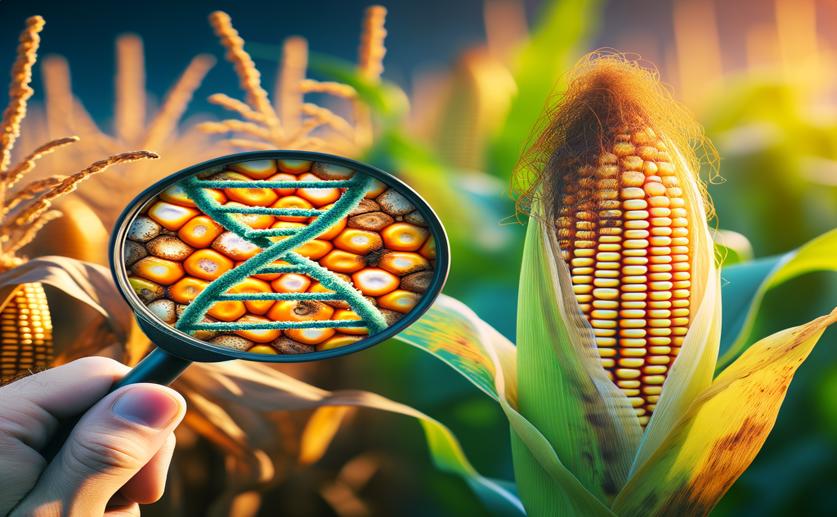
Understanding Leaf Blight Resistance in Corn Through a Detailed Genome Study
Jim Crocker
6th August, 2024

Image Source: Natural Science News, 2024
Key Findings
- The study by Punjab Agricultural University identified genetic markers and candidate genes that can help develop maize varieties resistant to maydis leaf blight (MLB)
- Using genome-wide association studies (GWAS), the researchers pinpointed specific regions in the maize genome linked to MLB resistance
- These findings can inform breeding programs and disease management strategies to protect maize yields from MLB globally
AgricultureGeneticsPlant Science
References
Main Study
1) Insights into maydis leaf blight resistance in maize: a comprehensive genome-wide association study in sub-tropics of India
Published 5th August, 2024
https://doi.org/10.1186/s12864-024-10655-x
Related Studies
2) Fungal Species Causing Maize Leaf Blight in Different Agro-Ecologies in India.
3) Genome-wide association study of 107 phenotypes in Arabidopsis thaliana inbred lines.
4) Plant resistance signalling hijacked by a necrotrophic fungal pathogen.
Journal: Plant signaling & behavior, Issue: Vol 3, Issue 11, Nov 2008



 31st July, 2024 | Greg Howard
31st July, 2024 | Greg Howard